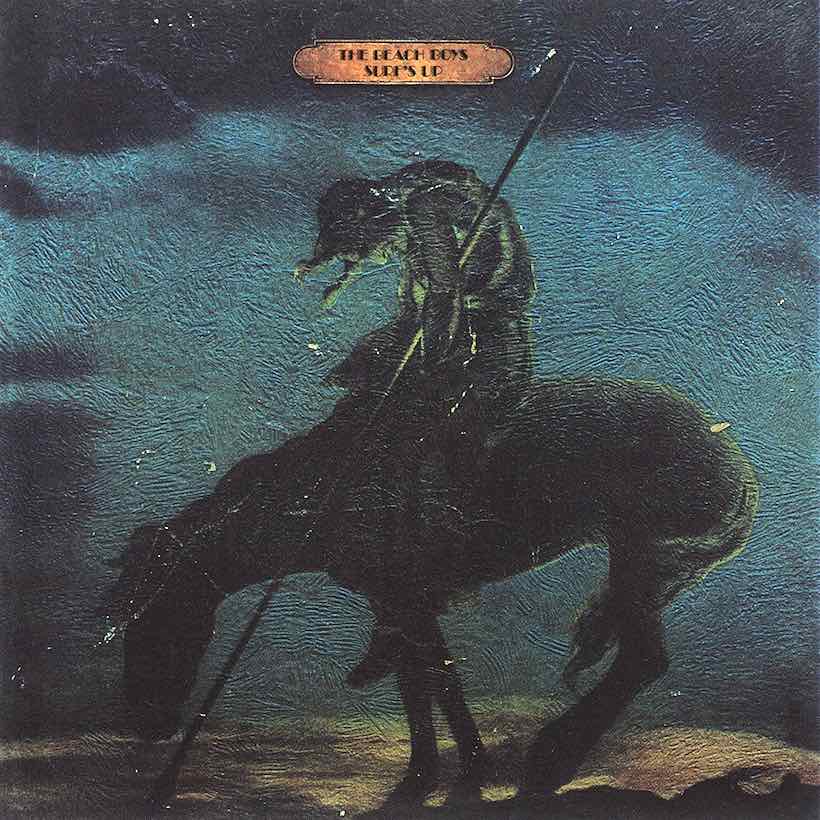By the turn of the 1970s, the world was a very different place from the utopian image of endless Californian surfing, cars and girls, as represented by the Beach Boys. But once again, the group rose magnificently to the challenge of making music that was both socially relevant and evocative of their initial glory. In 1971, they unveiled their new surfing sound of the 70s with the classic album Surf’s Up.
One of the great landmarks in the Beach Boys’ canon, the record was released on August 30 that year, at a point when their commercial fortunes had been at a low ebb. Their album of 12 months earlier, Sunflower, had only reached No.151 in a meagre four-week run on the American charts, and the group hadn’t had a top 20 single in the US since “Do It Again” (which topped the British bestsellers) hit No.20 in 1968.
The new project, produced by the band themselves for their Brother label, got the Beach Boys’ ship moving in the right direction again. They were now working with a new manager, Jack Rieley, and with his encouragement, they became a multi-faceted songwriting force.
Surf’s Up (Remastered 2009)
Click to load video
Surf’s Up is rightly remembered for Brian Wilson’s brilliant double-header that closes the album, “’Til I Die” and the title track collaboration with Van Dyke Parks, filled with its enigmatic lyrics and stirring harmonies. But just as remarkably, the album showcased a group with multiple writing teams, all bringing excellent work to the table.
Mike Love and Al Jardine contributed an opening song with an anti-pollution lyric that was really ahead of its time, “Don’t Go Near The Water.” Carl Wilson and Rieley completed “Long Promised Road” and Carl’s sweet voice led his own “Feel Flows.” Al and Gary Winfrey added the short, equally relevant “Lookin’ At Tomorrow (A Welfare Song),” the pair working with Brian on “Take A Load Off Your Feet.”
Disney Girls (1957) (Remastered 2009)
Click to load video
Bruce Johnston’s writing contribution was the magnificent “Disney Girls (1957),” while Brian and Rieley composed the plaintive “A Day In The Life Of A Tree,” on which the group’s manager also sang. There was even room for Love to sing his adaptation of Jerry Leiber and Mike Stoller’s “Riot In Cell Block No.9,” renamed “Student Demonstration Time” for the social situation of the day.
Dennis Wilson’s reduced role on the project was partly because he was working on solo material and the film Two Lane Blacktop, and partly that the songs he contributed were omitted to avoid in-fighting within the group, and the album being dominated by only Wilson brothers compositions.
‘Back in fashionable favor’
Surf’s Up, newly celebrated for its 50th anniversary as part of the Feel Flows box set, was perhaps the Beach Boys’ most ecologically prescient work, and the press voiced their approval. “‘Don’t Go Near The Water’ is probably the best song yet to emerge from rock’s current ecology kick,” wrote Time magazine. Richard Williams added in Melody Maker that “suddenly, the Beach Boys are back in fashionable favor and they’ve produced an album that fully backs up all that’s been recently written and said about them.”
Listen to the best of the Beach Boys on Apple Music and Spotify.
After charting on September 11, the album climbed to No.29 in the US, their best showing since 1967’s Wild Honey, and No.15 in the UK. It’s since won its rightful place in Rolling Stone’s 500 Greatest Albums Of All Time. Even if not all of the Beach Boys themselves regard it as a true classic, the album moved the Time reviewer to say that Brian’s music for it “has a high, soaring, quasi-religious vocal and instrumental character that even the Beatles of Abbey Road could envy.”
Buy or stream Feel Flows – The Sunflower and Surf’s Up Sessions 1969-1971.



